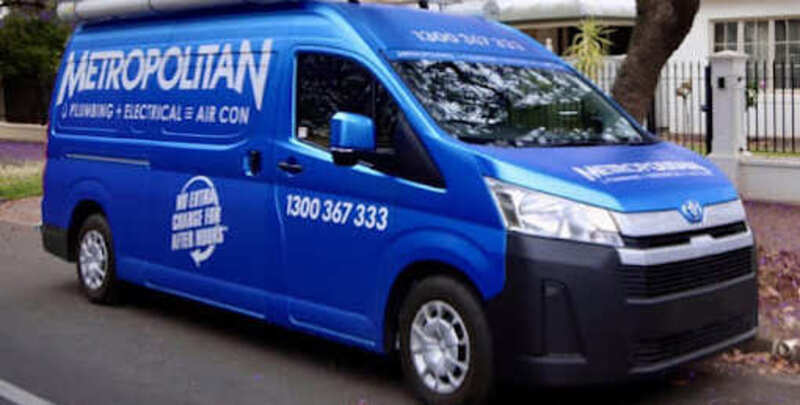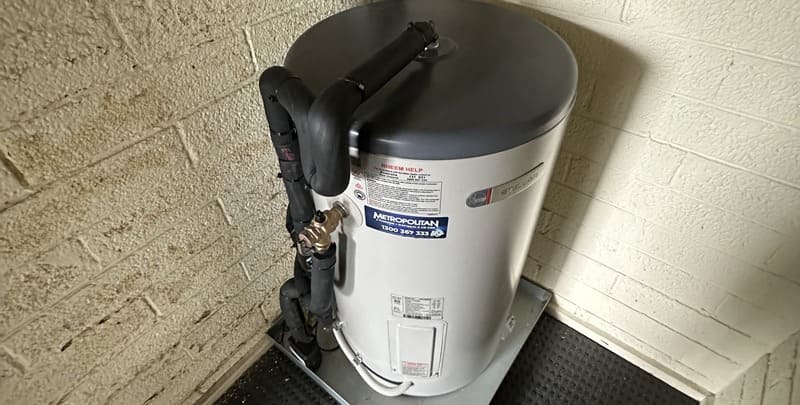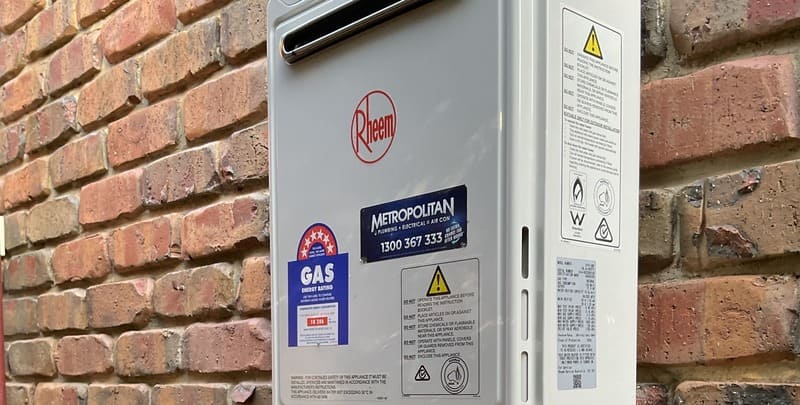
How Often Should a Water Heater Be Maintained?
Your water heater is a vital appliance in your home, providing you with a continuous flow system of hot water. Regular maintenance is crucial to keeping your hot water heater running efficiently and extending its lifespan. The last thing you want to be doing is comparing hot water system prices any earlier than is necessary. All because you didn’t provide your existing gas or electric hot water system with the level of TLC it needed. But it begs the question – how much hot water system maintenance do you need?
From electric instantaneous water heaters to gas storage systems and more, we’ll explore the ideal maintenance frequency. We’ll also identify the signs that indicate when it’s time to give your gas hot water systems some attention.
How Does a Water Heater Work?
A water heater, whether it’s a gas, solar or electric water heater, functions to heat and store water for domestic hot water consumption. It consists of a tank, a heating element (in electric models), a burner (in gas models), and various safety features.
When you turn on a hot water tap, cold water enters the tank through a dip tube. In electric hot water systems, heating elements located at the bottom warm the water. Some electric models, you might find the element at the top of the tank.
As for gas water heaters, a gas burner situated at the bottom heats the water. When your gas water heater heats your water, it rises to the upper section of the tank, prepared for dispensing. A thermostat watches the water temperature, making sure it stays within the desired range.
Once you stop using hot water, the heater kicks in to maintain the set temperature, saving energy. This system allows you to have continuous flow systems of hot water on demand, whether for showers, washing dishes, or any other household use.
Signs It’s Time for Hot Water System Maintenance
Your hot water outlets may look fine from the outside. However, they may contain internal issues that you can easily overlook. Here are some signs to watch out for:
- Strange noises: If you hear unusual sounds such as popping or rumbling, it could be a sign of sediment build up. This can reduce your water heater’s efficiency and is therefore something you’ll need to promptly address.
- Inconsistent hot water: If you’re experiencing inconsistent hot water that alternates between hot and cold, your water heater may have a faulty thermostat. There might otherwise be a build-up of sediment in the storage tank.
- Leaking: In a well-maintained hot water system, the heating element or natural gas burner activates only as much water can be heated to the set temperature. Therefore, a leaking water heater is a clear sign that you may need maintenance or repair.
- Rusty water: If you notice rust-coloured water coming from your hot water tap, it’s a sign of corrosion inside the tank. This can weaken the large tank and reduce its lifespan.
- Reduced hot water supply: A decrease in the hot water output can indicate a failing heating element or a build-up of sediment in the heat pump. Regardless, both of these require maintenance.
- Ageing unit: If your water heater is over a decade old, it’s a good idea to increase the frequency of your maintenance checks. Older units are more prone to issues and may benefit from more frequent attention. It might also be worth your while to consider a new hot water system.

Maintenance Frequency of Hot Water Systems
Now that you’ve known the signs, it’s time to find out how often you should maintain your new hot water system.
Here are two suggestions:
- Annual inspection: We generally recommend you have a licensed and fully qualified plumber inspect your water heater at least once a year. This guarantees that you can address any minor issues promptly and stop them from becoming major, costly problems. An annual inspection can help keep your water heater running smoothly and efficiently.
- Flushing the tank: Flushing the tank is an essential part of water heater maintenance. How often you should do this depends on your water quality. If you live in an area with hard water or notice sediment build up in your tank, consider flushing it once every six months. For those with softer water, once a year should suffice.
Maintenance Procedures
Beyond regular inspections and flushing, water heater maintenance involves a series of more detailed procedures that help them to perform optimally:
- Temperature and pressure relief valve testing: This is an essential safety device on your water heater. Check it annually to ensure it continues to function and prevent potential overheating and excessive water pressure.
- Checking the anode rod: The anode rod in your water heater prevents rust by sacrificing itself (hence why it’s often called a “sacrificial anode”). Inspect it annually and replace it when it wears thin or is rusted.
- Inspecting for leaks around fittings and valves: Early detection can prevent major water damage caused by leaks.
- Checking the pilot light (for gas systems): The pilot light should burn blue. If it burns yellow, it might mean the gas isn’t combusting completely, possibly resulting in carbon monoxide production.
Energy-Saving Tips
Maintaining your efficient hot water system or heater also generally includes optimising its energy use to save on your utility and electricity bills:
- Lower the temperature: Manufacturers often set water heater temperatures to 60°C, but most Australian households only need a setting of 50°C. Each 10°C reduction could save you up to 5% in energy costs.
- Consider insulation: An insulation blanket can reduce heat loss in your water heater, helping it operate more efficiently.
- Use low-flow showerheads and taps: These reduce the amount of hot water you use, putting less pressure on your water heater.
- Choose off-peak hours: If your utility has variable rates, use your water heater during off-peak electricity periods to save on running costs.

DIY vs Professional Maintenance
There are certainly some aspects of water heater maintenance that you can do as DIY tasks. These might include flushing the tank or checking the heat pump for leaks. However, it’s advisable to consult a professional plumber for annual inspections.
Plumbers have the expertise to identify and address potential problems with hot water systems. Problems that otherwise might not be immediately visible to an untrained eye. Regular professional inspections can help you catch issues early, securing your water heater’s long-term performance.
Water Heater Replacement
Most traditional hot water heaters last between 10 to 15 years. However, no matter how well you maintain your hot water systems – may they be electric hot water systems, natural gas, heat pumps, or solar hot water systems, know that every appliance has a lifespan.
Here are some signs you might need a replacement for heating gas hot water systems now:
- Old age: If your water heater is over a decade old, it’s a good idea to start thinking about a replacement. Even if they’re still functioning, older units become less energy-efficient over time and are more prone to unexpected breakdowns. By proactively replacing your ageing water heater, you can enjoy the benefits of newer, more efficient models. You can also avoid the inconvenience of a sudden breakdown.
- Frequent repairs: When your water heater requires frequent repairs, it might be more cost-effective to invest in a replacement. Continuous repair costs can quickly add up. Unfortunately, it’s a sign that your unit is nearing the end of its service life.
- Rusty water: If you notice rusty hot water coming from your taps and it’s not due to your home’s pipes, it’s likely a sign that the inside of your water heater tank is rusting. Rust inside the hot water tank can contaminate your hot water supply and lead to potential health concerns.
- Insufficient hot water: If you consistently run out of hot water too quickly, your water heater may not be the right size for your needs, or it might be losing its efficiency and need replacing.
The Bottom Line
Whether you have an electric hot water system or a solar hot water system, The right hot water system maintenance is crucial for keeping your water heating with continuous flow.
Annual inspections and periodic flushing can keep your hot storage tank unit and cold-water system in top shape while paying attention to signs of trouble guarantees that problems are addressed promptly.
By maintaining your water heater, you can enjoy a steady supply of hot water and avoid unexpected and costly repairs.
Please note: This information is provided for advice purposes only. Regulations differ from state to state, so please consult your local authorities or an industry professional before proceeding with any work. See our Terms & Conditions here.
Published: 2023-10-31

















